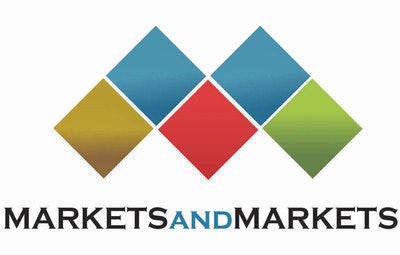
According to a new market research report, "Healthcare Supply Chain Management Market," published by MarketsandMarkets, the healthcare supply chain market is expected to reach $2.31 Billion by 2022, from an estimated $1.55 Billion in 2017, at a CAGR of 8.4 percent.
The key factors driving the growth of this market include the increased pressure on healthcare providers to improve operational efficiency and profitability; the adoption of the GS1 System of standards in the healthcare industry globally; implementation of the unique device identification initiative by the FDA; emergence of cloud-based solutions; continuous financial support in the form of funding, investments and partnerships; and the growing efforts to reduce the large-scale counterfeiting of drugs are driving the growth of the market.
The healthcare supply chain management market is segmented into software and hardware by component. In 2017, the software segment is estimated to account for the largest share of the healthcare supply chain management market. The large share of the software segment is attributed the various benefits it offers such as increased efficiency, reduced costs and business.
The market is also segmented into on-premise and cloud-based delivery modes. In 2017, on-premise segment is expected to command the largest share of the global healthcare supply chain management market. The large share of this segment can be attributed to its ease of use and the low risk of data breaches.
In 2017, manufacturers are expected to be the largest end users of the global healthcare supply chain management market. Manufacturers need supply chain management solutions to better coordinate their transportation and warehouse facilities. These solutions ensure faster, more accurate and more efficient functioning, and such advantages have increased demand for supply chain management solutions in this segment.
North America is expected to account for the largest share of the market due to factors such as consolidation of hospitals, regulatory requirements, increasing patient burden in the United States, and the implementation of various strategies to improve healthcare supply chain management in Canada.
The prominent players in the global healthcare supply chain management market currently include SAP (Germany), Oracle (US), Infor (US), GHX (US), McKesson (US), TECSYS (Canada), Manhattan Associates (US), JDA software (US), Jump Technologies (US) and LogiTag (Israel).









